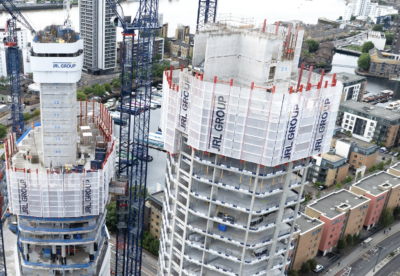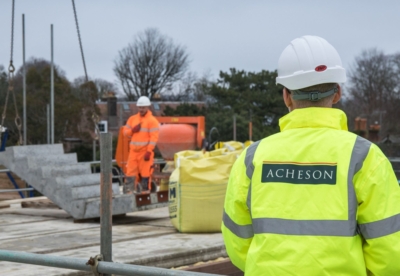The letter signed by 200 firms highlights the “existential threat to the survival of businesses posed by the increasingly anti-development policy environment.”
It warns that current blocks to development threaten to wipe out a growing number of firms in the coming months and years with 78% of firms considering scaling back their residential construction activities.
Smaller house builders are facing a raft of problems including:
- The collapsing planning process where under-resourced local authority planning departments can take years to process applications
- Planning reform. Michael Goves capitulation on the planning system to an anti-development faction of Conservative MPs – particularly the removal of mandatory housing targets and a softening of the Five-Year Land Supply Requirement, has now seen 58 local authorities withdraw or pause their Local Housing Plans.
- Interventions by Government quango Natural England are delaying an estimated 180,000 homes over the disputed contributions of housing work to high levels of nutrients in waterways
- The costs of the growing number of new taxes, regulations and policies are adding at least £20,000 to the cost of building a new home
- Rampant inflation, supply chain issues and the challenging economic environment are further driving up costs.
Stewart Baseley, Executive Chairman of the Home Builders Federation said: “SMEs are the lifeblood of all industries, but in house building we are seeing them being driven out by an increasingly anti-development, antibusiness policy environment. The planning process is grinding to a halt and regulatory costs are rocketing, whilst the nutrient issue has put the brakes on sites across a quarter of the country.
“The impact of this policy approach is devastating for SMEs, and businesses unable to operate or generate an income are laying off staff, or increasingly closing their doors. We are urging Government to act now so that the businesses that remain have a chance of survival.”
Steve Morgan, Founder of Redrow plc added: “When Redrow commenced home building as a small SME in the 1980s there were very few barriers to entry. I, and many others, were able to set up building companies from scratch and grow them into large regional or national builders, with all the homes, jobs and economic benefit that came with it.
“From ‘red line’ outline planning permissions, it would take six to eight weeks to get the first spade in the ground. Land was available, planning was pragmatic and finance was relatively easy to source.
“Sadly, the current operating environment and the Government’s anti-building stance makes it virtually impossible for today’s generation of SMEs to succeed. The country needs SME builders and the homes they are capable of supplying. However, the wall of bureaucracy in the system is completely stacked against them. I implore ministers not to turn their backs on the hard-working, aspiring business owners of this country, before it is too late!”
The struggles of SME house builders:
Steve Midgley, Managing Director of Fairgrove Homes: “I truly don’t know how anyone could start these days without substantial investor backing, so anyone without large company experience or a pot of money probably has no chance. We are seriously considering cutting back and reducing what we do if not leaving the industry all together.”
Mark Waite, Head of Planning at Kellen homes: Mark Waite, Head of Planning at Kellen Homes: “We’re a new entrant to the homebuilding industry, focused on brownfield sites. Our direction of travel is entirely aligned with the direction of national policy. We are determined to succeed – and believe we will – but we are needing to tailor our own growth plans to account for the seemingly endless blockages in the system”
Kate Tait, Group Strategic Land and Planning Director at Cameron Homes: “As a family run regionally-based business, the uncertainty over land supply with planning permission is impacting on our ability to guarantee continuity of work and therefore retain our site based staff, subcontractors and supply chain. Without assurances of where they will be placed next, we risk losing long-serving staff to firms that can offer greater certainty of future work on larger sites. This leaves us in a perpetuating cycle of delays that is hampering our ability to progress and build homes local communities need.”










































 (300 x 250 px).jpg)





.gif)




